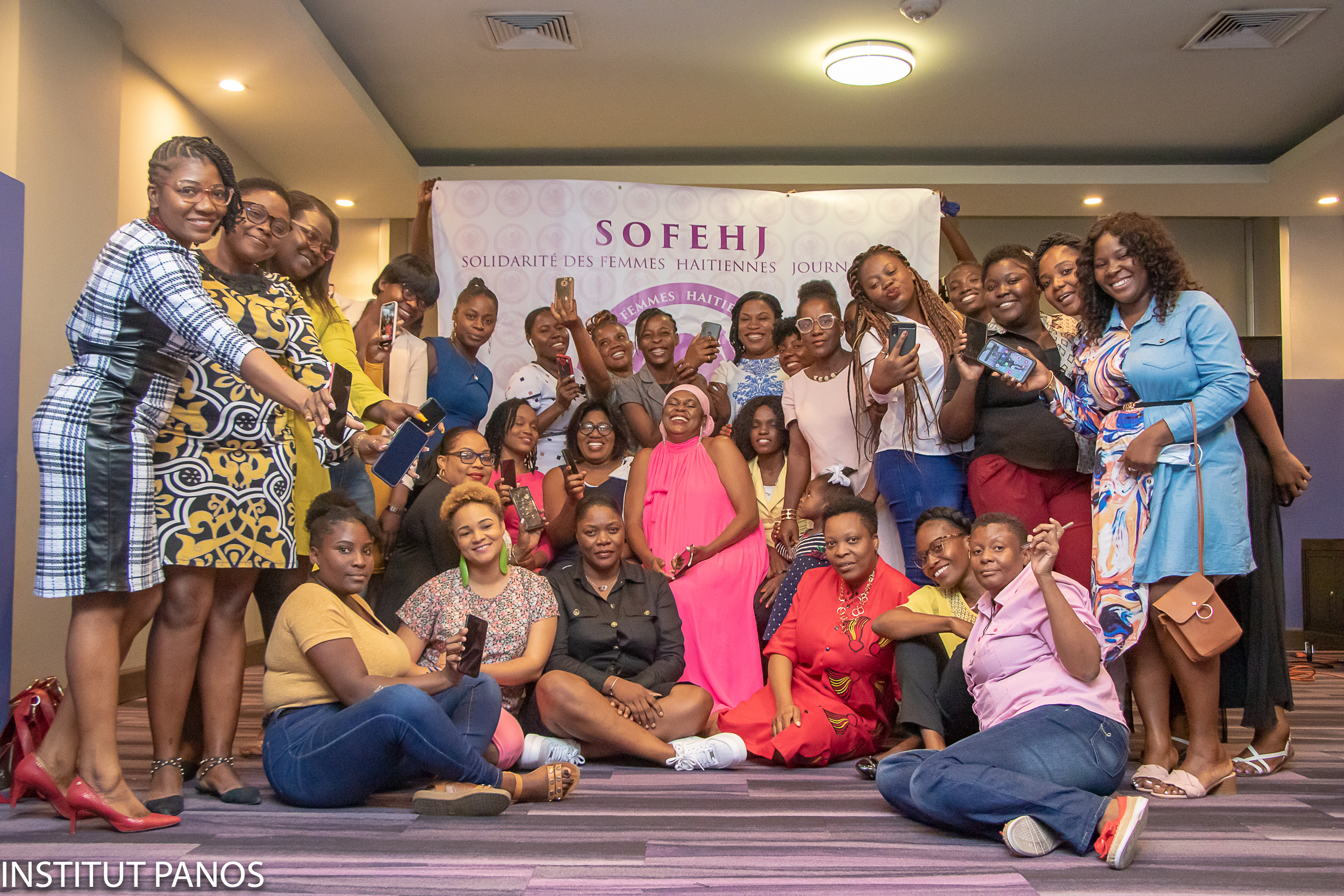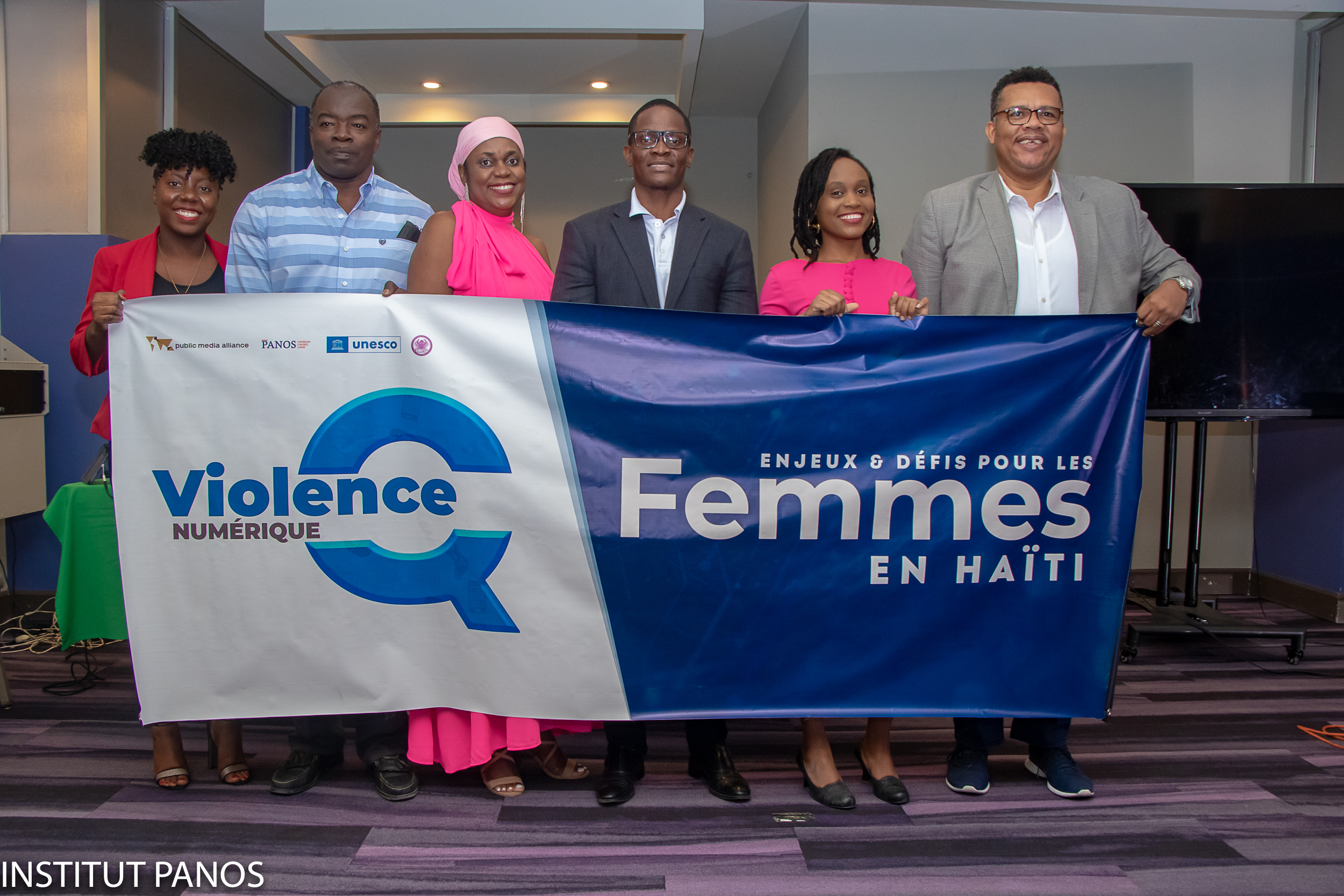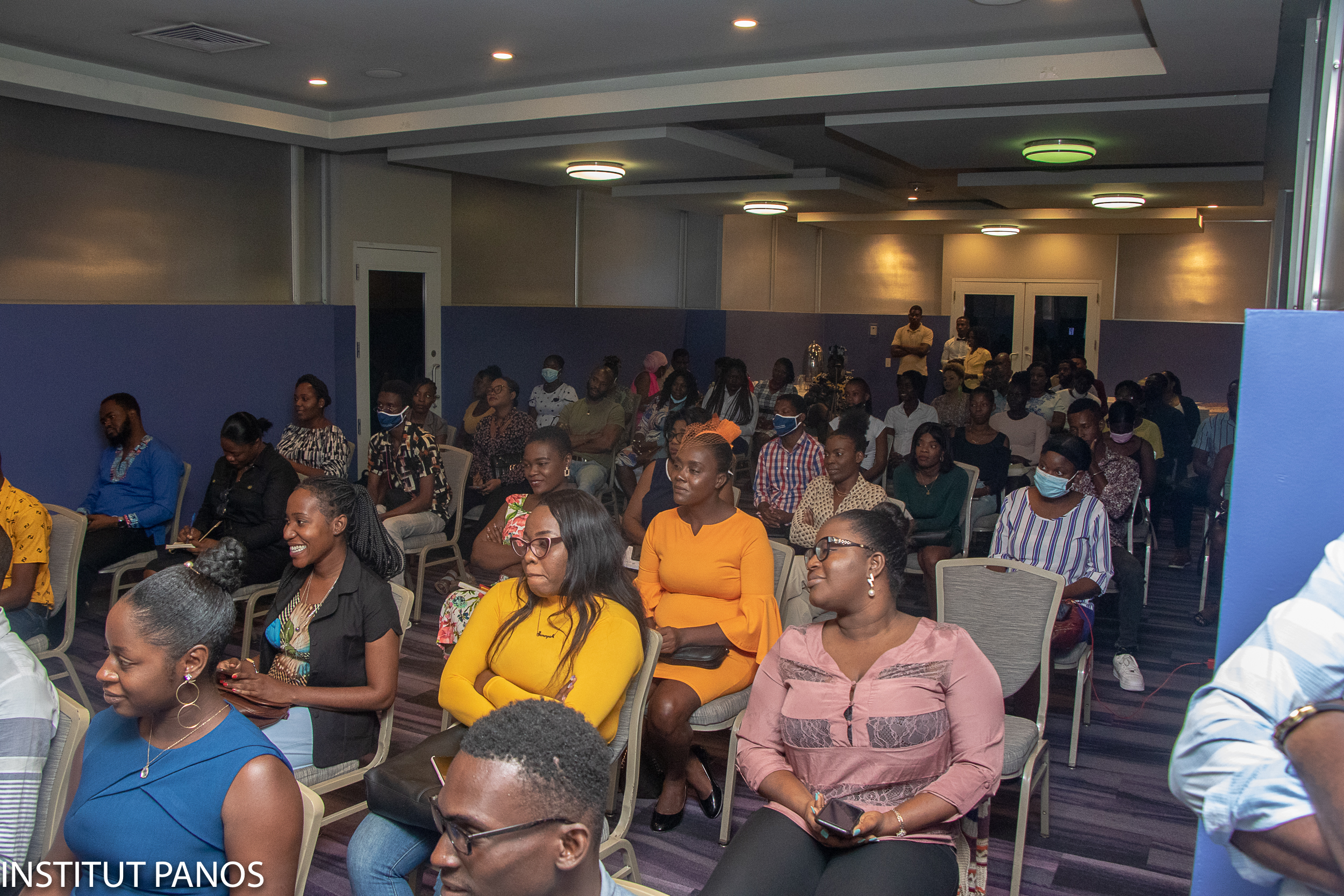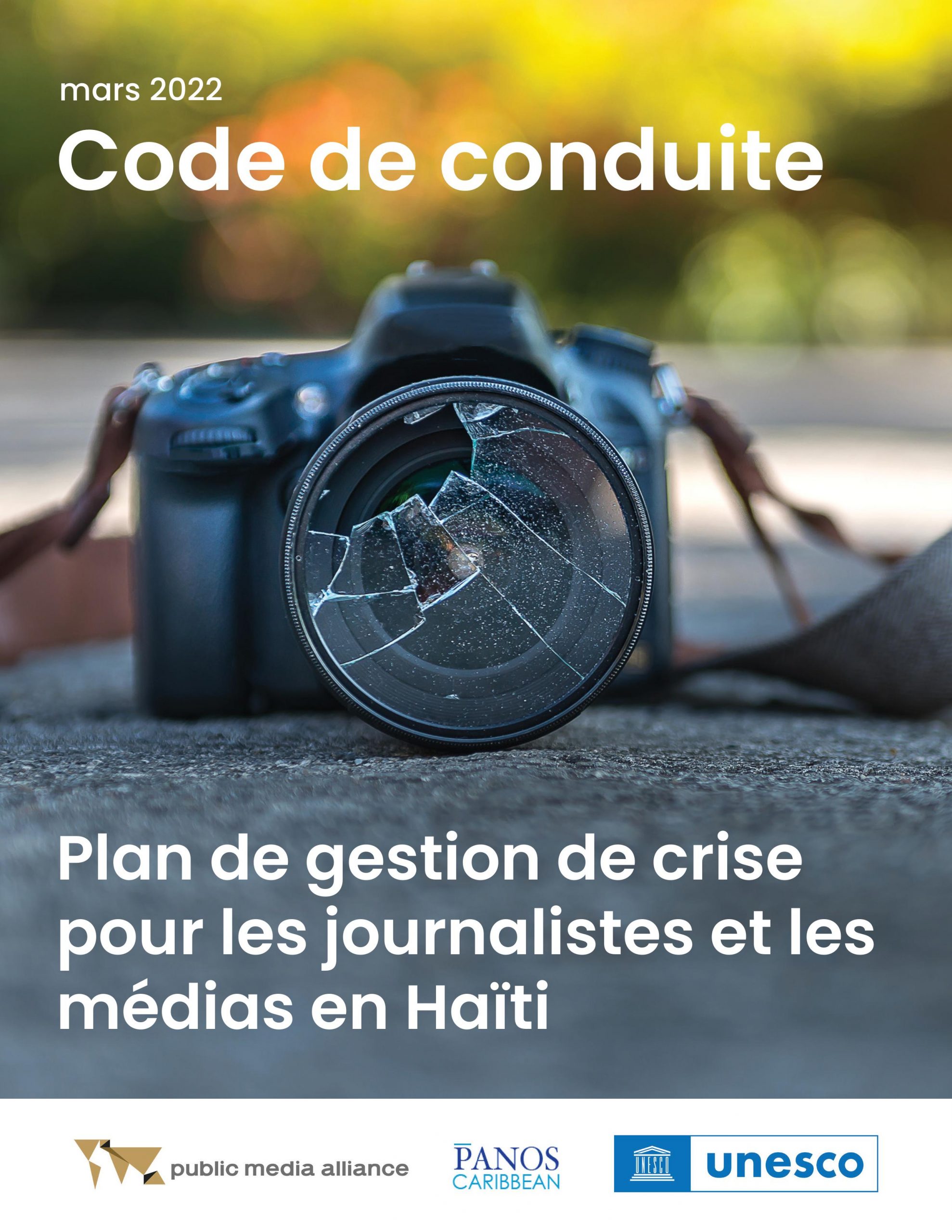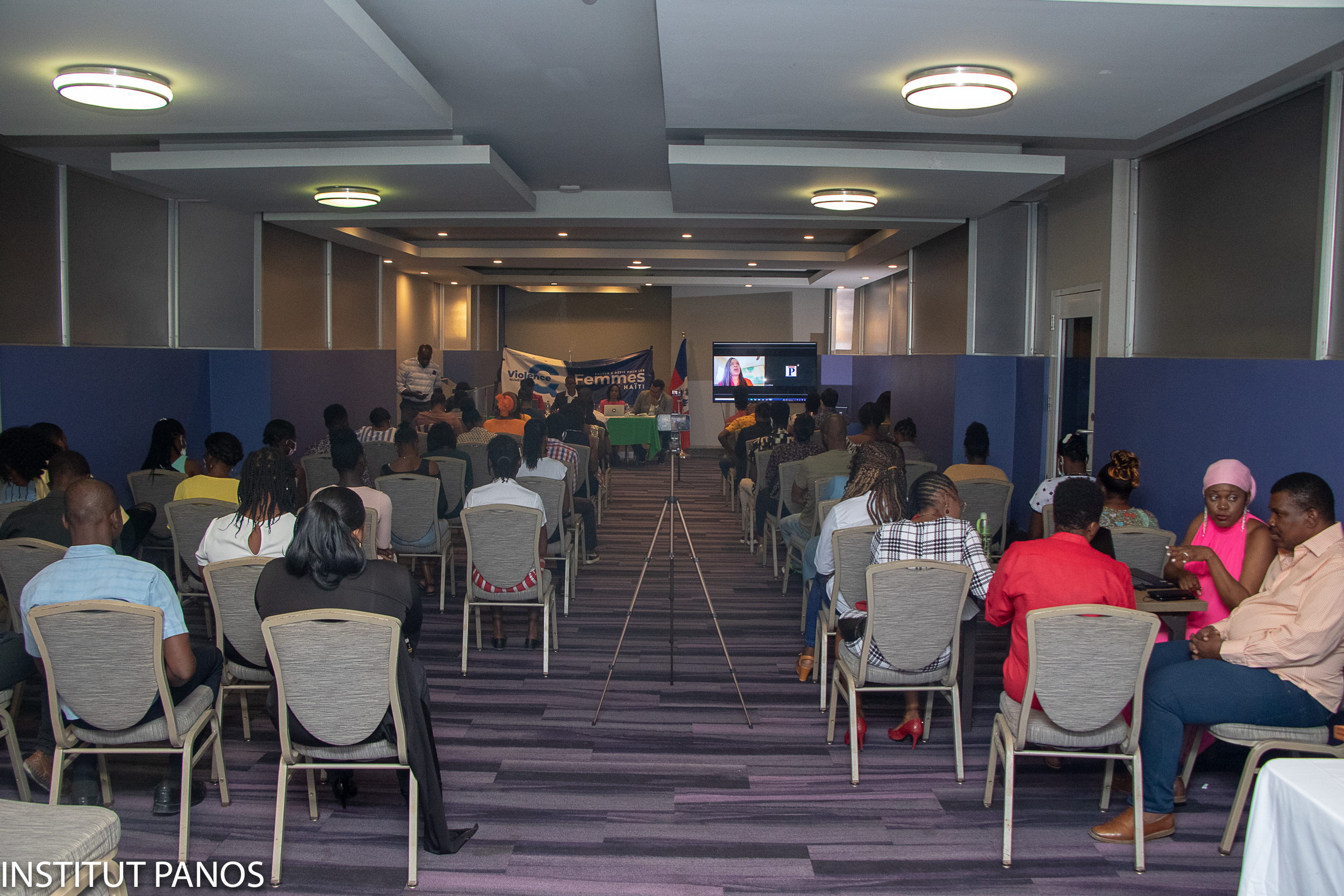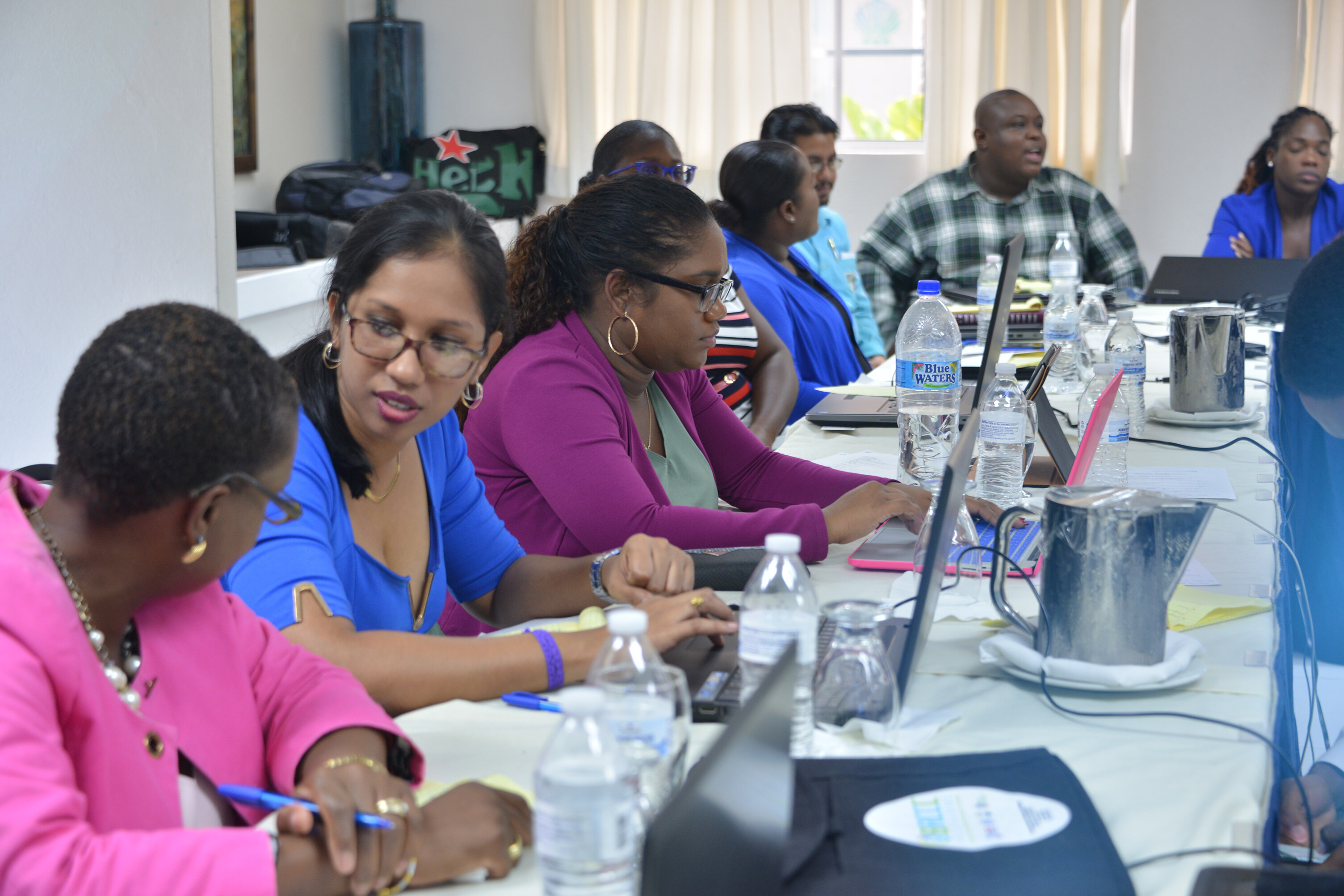1 April 2022
The highlights of our Haiti crisis management project
Our project, “Protecting Journalists in Haiti and Countering Disinformation and Misinformation during a Pandemic”, has recently concluded. Over the course of March 2022, we held several events and activities geared at building the capacity of the Haitian media landscape in the areas of ethical journalism, the safety of journalists, and countering disinformation.
The project was the culmination of months’ worth of work that began in June 2021 with a mapping exercise and subsequent situation report on Haiti’s local context, challenges, and needs.
Here are our project highlights.
Ethical and responsible reporting workshop – 2-3 March
From 2-3 March, 30 media workers met virtually for training and discussion designed to build their capacity and contribute to the local media landscape. The training offered practical lessons on how journalists can report ethically and responsibly while ensuring their own safety, with emphasis on the local context.
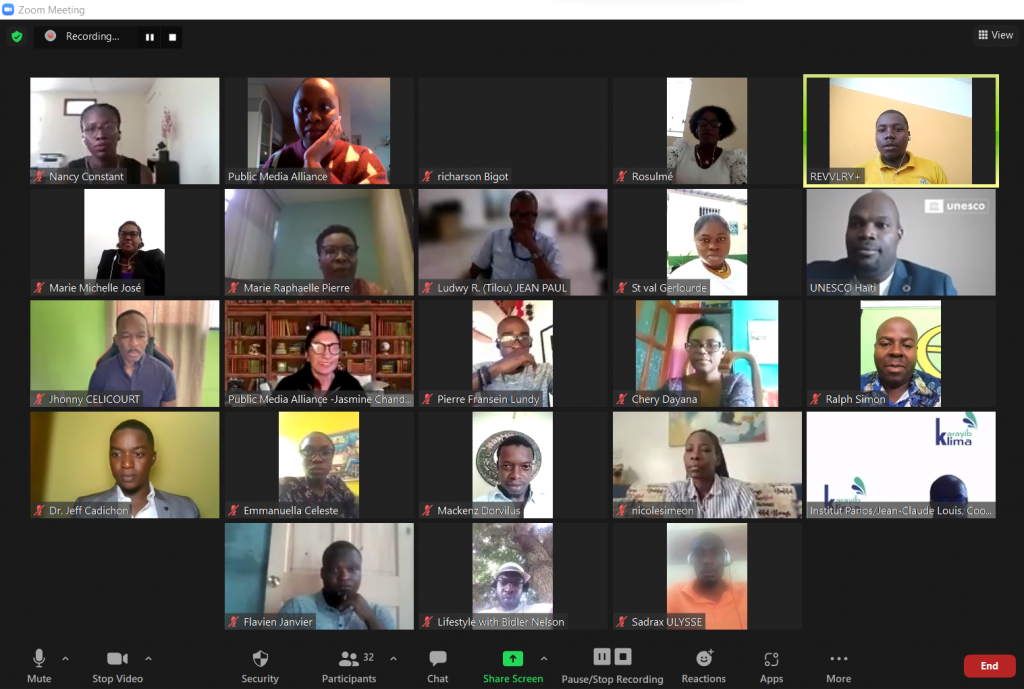
The lead trainers for the workshop were Jean Claude Louis, Coordinator of Panos Caribbean, and Joseph Celicourt, a specialist in the development and design of materials for social and behaviour change (SBCC) and mass media. Several guest experts also participated in the workshop and shared their expertise and knowledge.
Digital safety for women – 6 March
As a prelude to International Women’s Day, there was an event in Haiti on digital safety for female journalists. On Sunday 6 March, an in-person International Women’s Day event covered digital safety and related issues, and solutions for local female journalists. It was organised by the Public Media Alliance and its partners PANOS Caribbean, UNESCO Haiti, and Solidarite des femmes haitiennes journalistes (SOFEHJ).
The conference sought to draw attention to the urgent need to combat both digital and physical violence against women journalists, particularly during times of crisis. It also offered an opportunity to discuss digital violence against the wider female population in Haiti.
Watch: Catch up on the event
Crisis reporting toolkit launched – 15 March
As part of the project, the Public Media Alliance developed a toolkit that builds upon the project’s themes of ethical journalism, the safety of journalists, and combating disinformation. The toolkit targets Haitian media workers, with French, Creole and English resources available, but it can also apply to other francophone professionals.
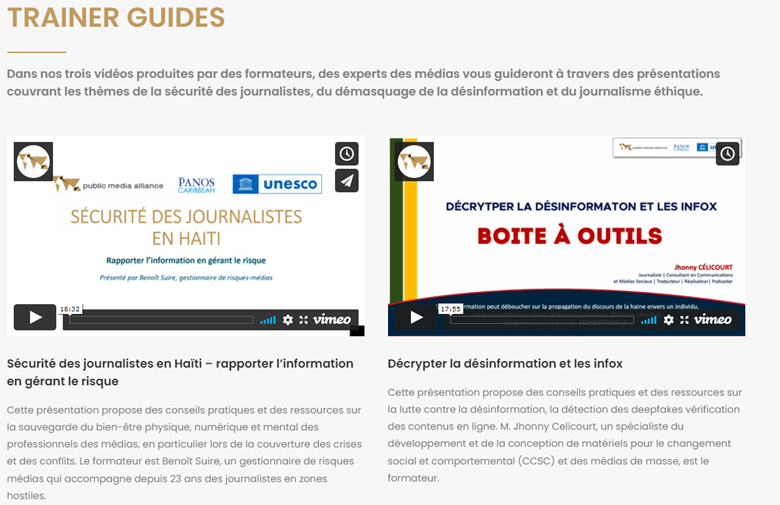
The toolkit is comprised of trainer-led videos, a comprehensive list of resources, workshop presentations, and more. It is as an easily accessible resource meant to support long-term capacity building in Haiti.
Risk management and conflict reporting training – 15 March
Through our local partner, Association Nationale des Medias en Lignes (AHML), 25 journalists received in-person training on media coverage and risk management in an environment of protest or conflict in Haiti.
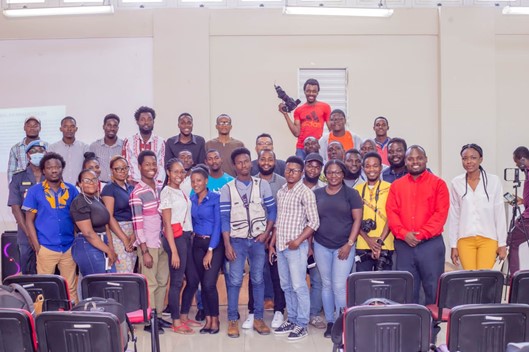
The training sought to guide journalists on how they could undertake their job while managing the associated risks of reporting during conflicts. Journalists were also educated on the operating methods of the police in terms of crowd management. The training drew upon real-life scenarios based on observations made from the assassination of three Haitian journalists in the first quarter of 2022, Le National reports.
Code of conduct on crisis management launched – 30 March
The project concluded with the release of a Francophone crisis management code of conduct for Haitian media professionals. The code was developed using feedback from 30 journalists and media stakeholders in Haiti who participated in the virtual training sessions from 2-3 March 2022.
The code of conduct on crisis management covers:
- Holding power to account through ethical journalism
- Ensuring the safety of journalists in times of crisis
- Countering disinformation through ethical practices, quality journalism, and the promotion of media literacy
The project, along with its resulting code of conduct, was organised by the Public Media Alliance with the support of our local partner Panos Caribbean, the UNESCO Haiti Office, and the Rapid Response Mechanism of the International Program for the Development of Communications (IPDC). We extend our thanks to Mr. Jean Claude Louis, Coordinator of Panos Caribbean, for his invaluable input and support throughout this project. Special thanks are also extended to our workshop trainers and participants, SOFEHJ, and AHML.

Related Posts
8th March 2022
HAITI PROJECT UPDATE: #IWD2022 event follows successful workshop
As a prelude to International Women's…
1st March 2022
HAITI PROJECT BEGINS: Capacity building of journalist reporting in crisis situations
Our journalist safety and…
29th June 2021
Projet : Protéger les journalistes en Haïti et lutter contre la désinformation et la mésinformation pendant une pandémie
Nous sommes heureux d'annoncer notre…
